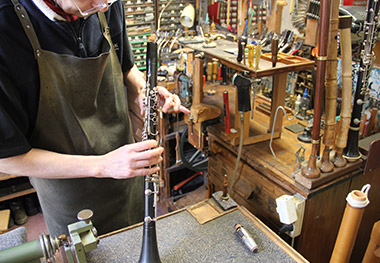

Rousseau’s music (as opposed to his writing about music) is omitted entirely. The Pléiade edition omits the many articles that Rousseau compiled for the Encyclopédie in 1749 (see Encyclopédie Articles) and simply reprints the Dictionnaire de musique without critical apparatus. The significant delay in preparing Volume 5 ( Rousseau 1959–1995) meant that readers whose attention was drawn to Rousseau’s Essai sur l’origine des langues by Derrida 1976 (cited under Foundational Studies of Rousseau with Significant Comment on the Musical Writings) long had to rely on stand-alone editions such as those of Charles Porset ( Rousseau 1958), Jean Starobinski ( Rousseau 1990 reissued in Rousseau 1959–1995), or Catherine Kintzler ( Rousseau 1993). The standard French edition of Rousseau’s works is that published by Gallimard ( Rousseau 1959–1995) in the Bibliothèque de la Pléiade series.

The various scholarly activities sparked by the three-hundredth centenary of Rousseau’s birth in 2012, including the new Garnier edition of his Œuvres complètes, promise further to enrich our understanding of Rousseau’s multifarious musical activities. The general modern resurgence of interest in Rousseau’s musical writings began with Lévi-Strauss 1976 and Derrida 1976 (both cited under Foundational Studies of Rousseau with Significant Comment on the Musical Writings), and it received further impetus from the lengthy gestation of the fifth volume ( Écrits sur la musique, la langue et le théâtre see Rousseau 1959–1995, cited under Editions) of the standard Pléiade edition of Rousseau’s works. The late melodrama Pygmalion (1775) popularized a genre of which Rousseau was effectively the inventor, and which enjoyed a long posterity running through Franz Benda’s (b. 1709–d. 1786) numerous Melodramen and Beethoven’s Fidelio (1805) to Schoenberg’s A Survivor from Warsaw (1947). His opera Le Devin du village (1752) was among late-18th-century France’s perennial favorites and was still in the repertoire during Berlioz’s lifetime it also exerted a key influence on the early development of opéra comique. His musical writings occupy fully a fifth of the total corpus of his works, and they span from almost his first publication (the Dissertation sur la musique moderne of 1743) to his late writings on Gluck (e.g., the Extrait d’une réponse du petit faiseur à son prête-nom sur l’Orphée de M. Though somewhat overshadowed in posterity’s estimation by the preoccupations of his political and autobiographical writings, musical questions were nonetheless a subject of life-long interest for Rousseau.
#ROUSSEAU MUSIQUE FULL#
His interests ranged across the full field of 18th-century musical thought: musical antiquarianism (Greek harmonic theory and medieval music, especially that of Guillaume de Machaut), musical ethnography (particularly Chinese, Persian, and Amerindian musics), music theory (notably the writings of his great contemporaries Giuseppe Tartini and Jean-Philippe Rameau), operatic aesthetics (especially the century-long and seemingly endemic controversy over Italian and French opera, but also melodrama, opéra comique, and the opera-reform movement associated with Gluck), systems of musical notation, and so on.

Rousseau was active as a composer, theorist, copyist, compiler, editor, and polemicist. Recent scholarship has increasingly recognized the central role that Jean-Jacques Rousseau (b. 1712–d. 1778) played in the musical life of Enlightenment France.


 0 kommentar(er)
0 kommentar(er)
